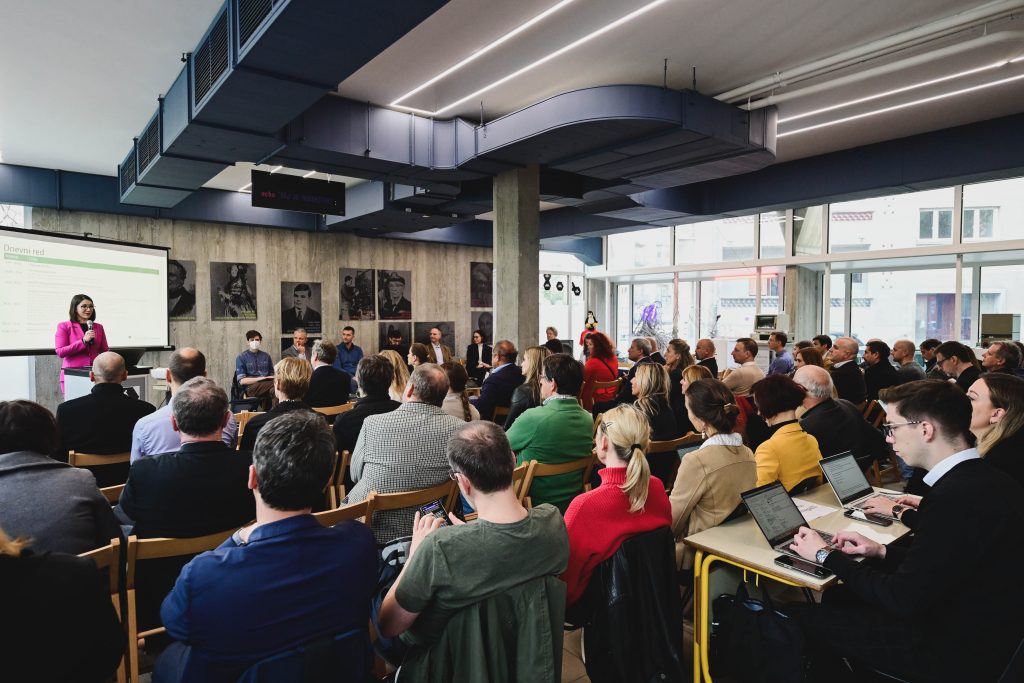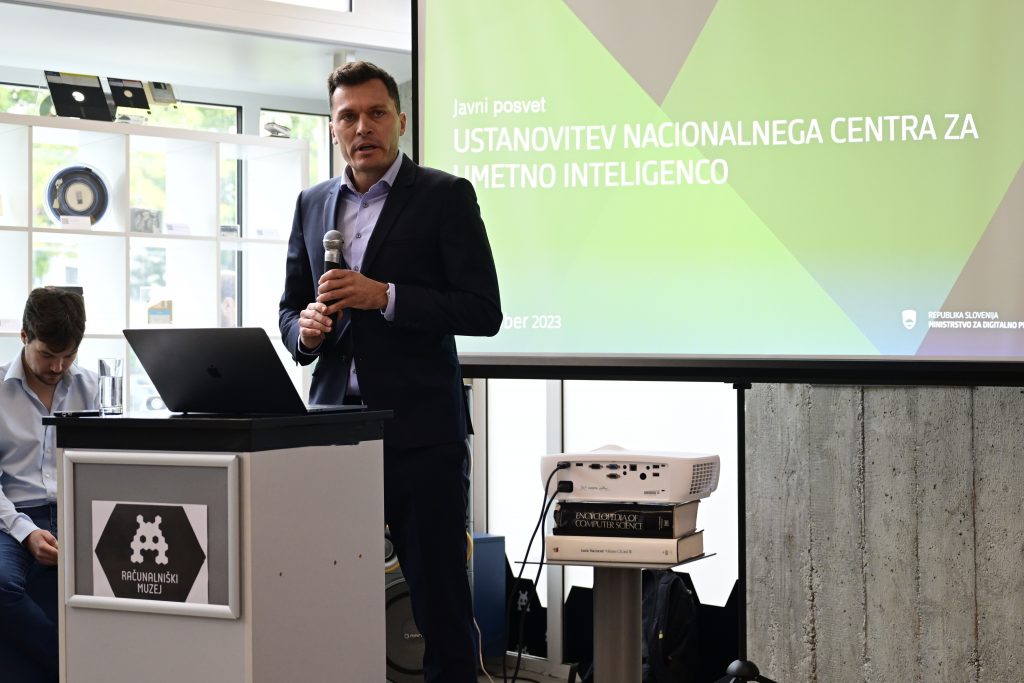The National Center for Artificial Intelligence will put Slovenia on the map of more advanced countries

Slovenia can be extremely ambitious in the field of UI, as it comes from more than 40 years of experience in conducting research activities and suitable internationally comparable research results in the field of UI, which gives it an advantage over many developed countries in the world. In the field of UI, Slovenia also has great potential for improving the lives of citizens, for starting and increasing the competitiveness of the economy, and for supporting the functioning of society in such a way that it can successfully cope with the challenges ahead. That is why the Ministry of Digital Transformation strives to further strengthen this area.
Minister dr. Emilija Stojmenova Duh in the opening address of the public consultation, she highlighted the importance of such consultations for the best possible implementation of the National Program for the Promotion of the Development and Use of Artificial Intelligence in the Republic of Slovenia until 2025 (NpUI), which we adopted in Slovenia in 2021.When we presented the idea of a National Center for Artificial Intelligence to key stakeholders in July, it was very positively received, so today we wanted to continue with a wider public discussion," the minister explained, adding that the main purpose of the consultation is to hear as many opinions as possible at the ministry, whether Slovenia wants such a center, what it would look like and how the ministry can best help with this. "I believe that the more we work together, the more everyone contributes their share, the more opportunities we will have," the minister added at the end. Stojmenova Duh.
After the opening address of the minister, the address of the Minister of Higher Education, Science and Innovation followed. dr. Igor Papič, who welcomed the idea of a National Center for Artificial Intelligence as: “the beginning of a good story, which we will also carry out". After that, the discussion of the panelists started, which he led Martin Marzidovšek, consultant for artificial intelligence at the Ministry of Digital Transformation and researcher at the Department of Knowledge Technologies at the Jožef Stefan Institute. "Slovenia must set ambitious goals in the field of research and development of artificial intelligence technologies as well as in innovative use. It is in innovation that the potential of already developed and future artificial intelligence technologies can stimulate scientific and engineering breakthroughs", said Marzidovšek at the start of the consultation, adding that the goal of establishing the National Center for Artificial Intelligence is to put Slovenia on the international map of more advanced countries.

Panelists, dr. Vida Groznik, researcher in the Artificial Intelligence Laboratory at the Faculty of Computer Science and Informatics of the University of Ljubljana, prof. dr. John Shawe-Taylor, director, International Research Center on Artificial Intelligence (IRCAI), dr. Martin Žnidaršič, researcher at the Department of Knowledge Technologies at the Jožef Stefan Institute, prof. dr. Andrej Gubina, director of the Innovation and Development Institute of the University of Ljubljana, Jana Kolar, President of the European Strategy Forum on Research Infrastructures (ESFRI), Boštjan Špetič, co-founder of Zemant (Outbrain) at the Slovenian Technological Forum, Miha Mlakar, co-founder of Pareto AI, Rogelj Rogelj, cloud computing expert - Data and artificial intelligence at Microsoft Slovenia and Filip Dobranić from the Danes je nov dan institute, they discussed whether and why Slovenia needs a Center for Artificial Intelligence, what the mission and activities of this center will be, innovations and introduction of AI in various spheres of the economy and society, and the challenge with personnel in the field of artificial intelligence.
The panelists agreed that Slovenia has a big problem with the lack of personnel, dr. Vida Groznik highlighted her concern for the lack of personnel in the field of artificial intelligence in the academic sphere. At the National Center for Artificial Intelligence, the panelists also recognized the possibility of solving or at least mitigating this problem. Above all, everyone agreed that for the successful operation of the center and the transfer of information and knowledge between various stakeholders, it will be important to have high-quality cooperation and guaranteed funding, and that the center will be as independent as possible. Miha Mlakar, in addition to spreading knowledge about UI among experts, also highlighted the importance of spreading knowledge among the general population, and he sees potential in the national center for this aspect as well. At this point, the panelists also highlighted the importance of ethics in artificial intelligence.
The conclusion of today's public consultation was that Slovenia has the knowledge and also a long-standing tradition to establish an efficient National Center for Artificial Intelligence and thus make its way to the world level in the field of AI. In order to achieve this goal, it is crucial that all stakeholders cooperate with each other, learn from each other, and only in this way can we as a country be successful and competitive in this field.






























